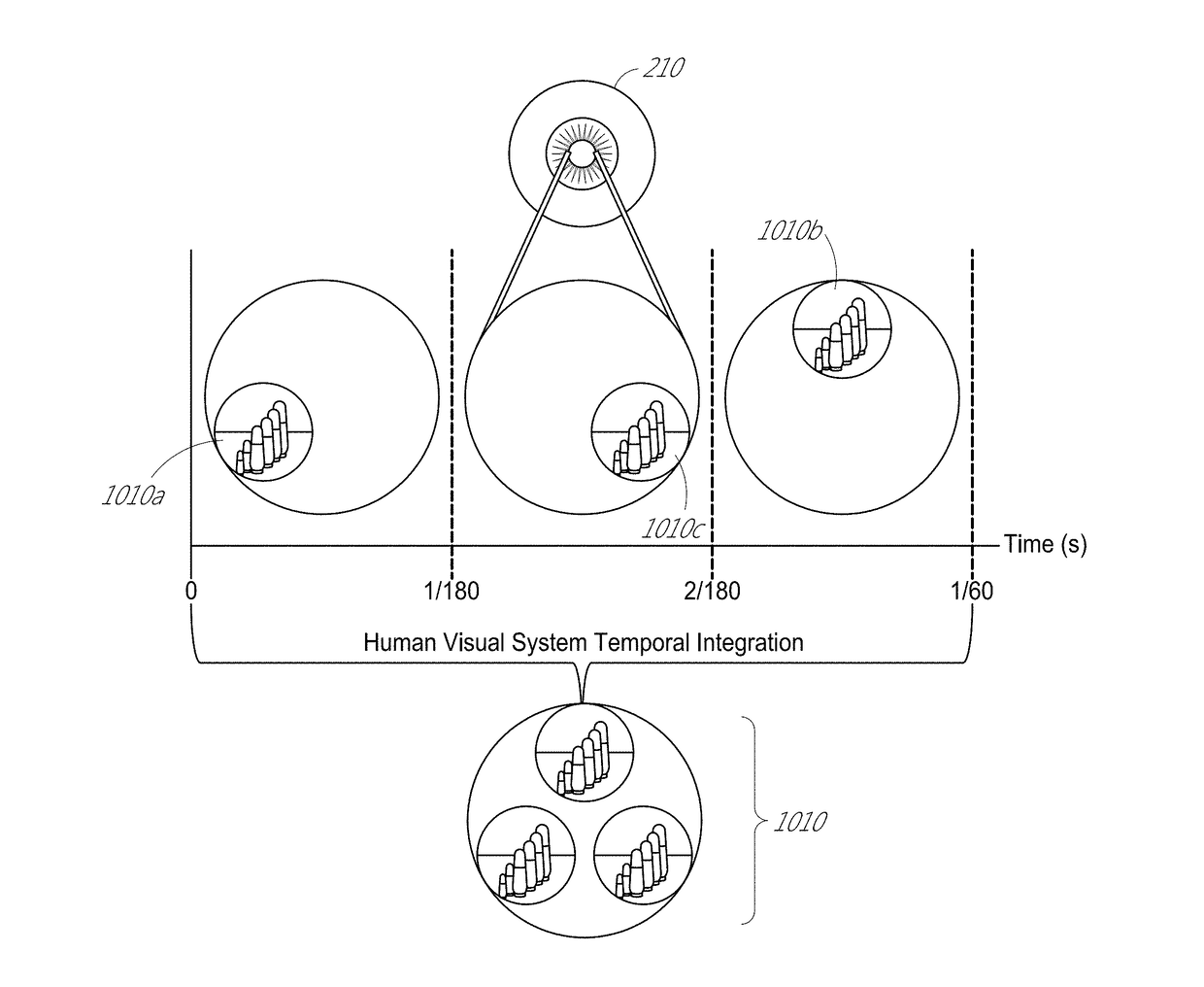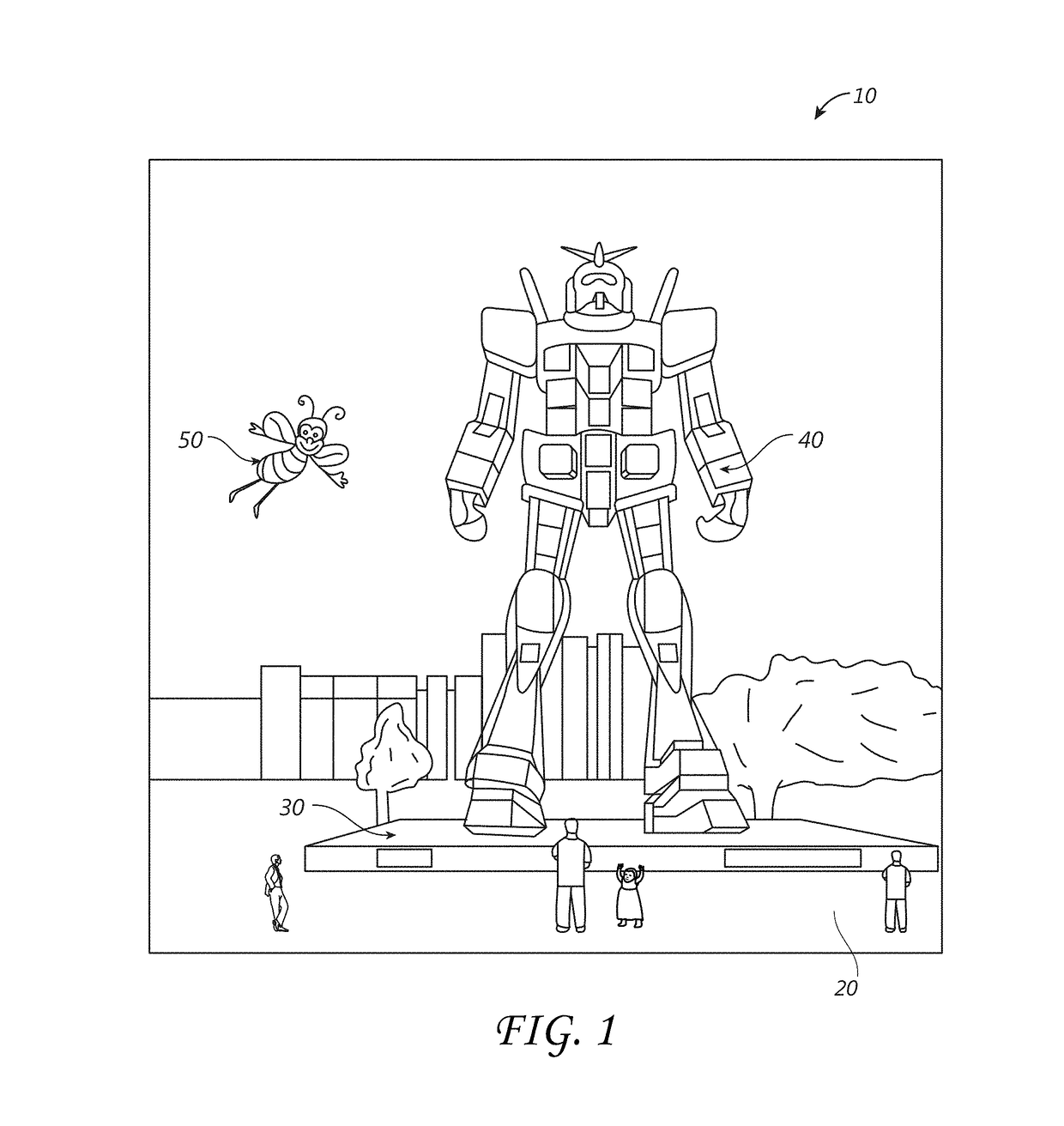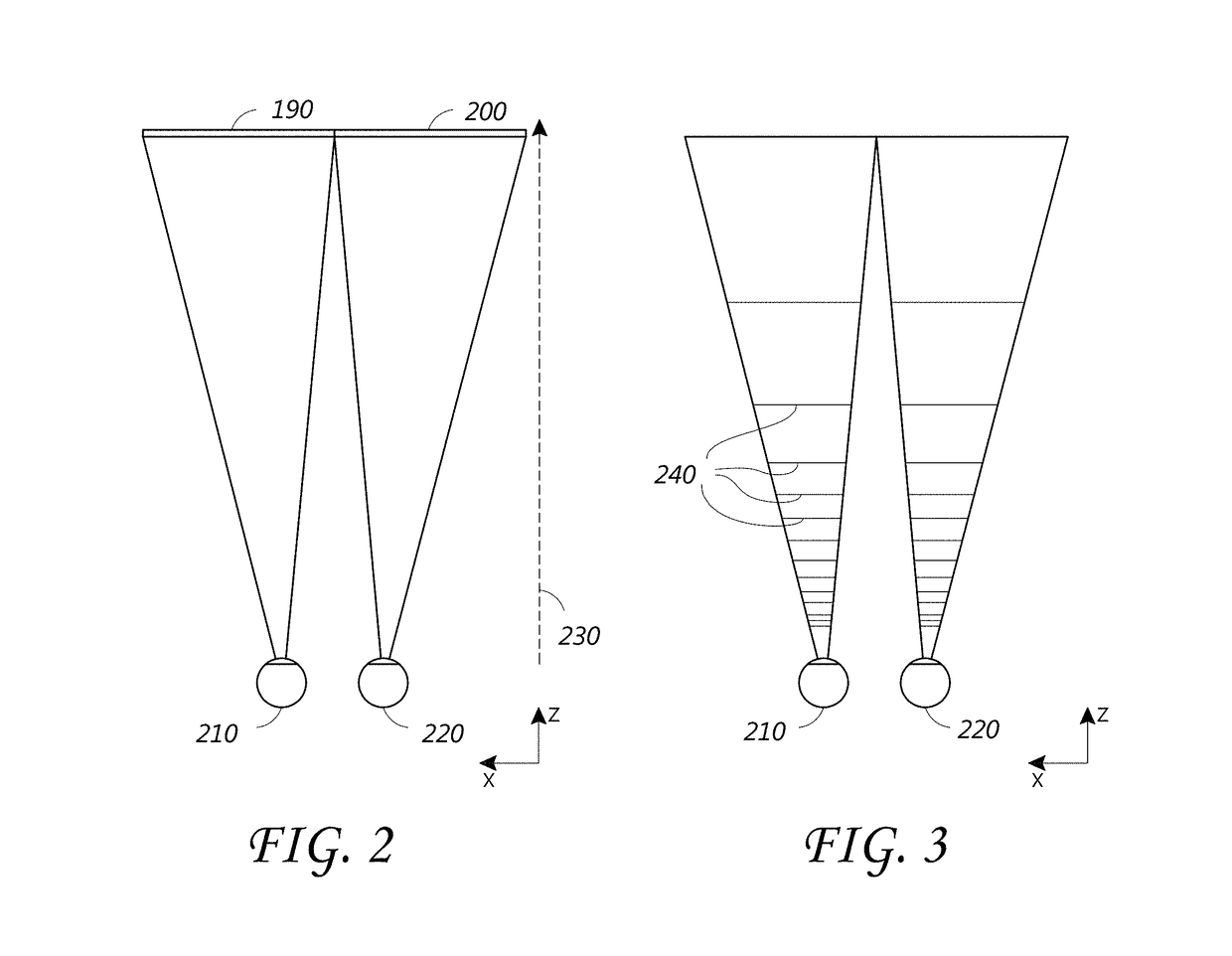System and method for presenting image content on multiple depth planes by providing multiple intra-pupil parallax views
- Summary
- Abstract
- Description
- Claims
- Application Information
AI Technical Summary
Benefits of technology
Problems solved by technology
Method used
Image
Examples
Embodiment Construction
[0108]The human visual system may be made to perceive images presented by a display as being “3-dimensional” by providing slightly different presentations of the image to each of a viewer's left and right eyes. Depending on the images presented to each eye, the viewer perceives a “virtual” object in the images as being at a selected distance (e.g., at a certain “depth plane”) from the viewer. Simply providing different presentations of the image to the left and right eyes, however, may cause viewer discomfort. As discussed further herein, viewing comfort may be increased by causing the eyes to accommodate to the images similarly to the accommodation that would occur if the viewer were viewing a real object at that depth plane on which the virtual object is placed.
[0109]The proper accommodation for a virtual object on a given depth plane may be elicited by presenting images to the eyes with light having a wavefront divergence that matches the wavefront divergence of light coming from...
PUM
 Login to View More
Login to View More Abstract
Description
Claims
Application Information
 Login to View More
Login to View More - R&D
- Intellectual Property
- Life Sciences
- Materials
- Tech Scout
- Unparalleled Data Quality
- Higher Quality Content
- 60% Fewer Hallucinations
Browse by: Latest US Patents, China's latest patents, Technical Efficacy Thesaurus, Application Domain, Technology Topic, Popular Technical Reports.
© 2025 PatSnap. All rights reserved.Legal|Privacy policy|Modern Slavery Act Transparency Statement|Sitemap|About US| Contact US: help@patsnap.com



